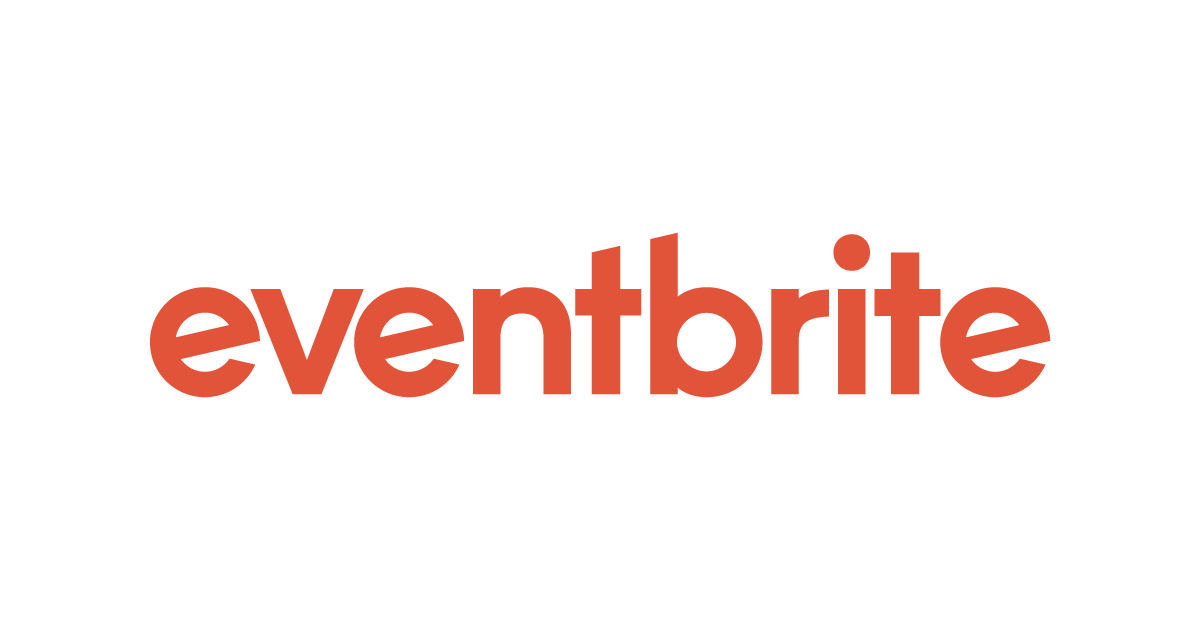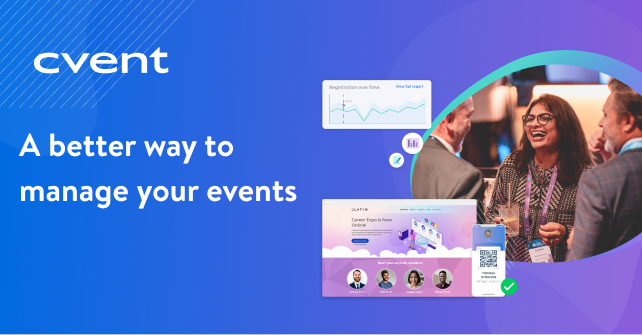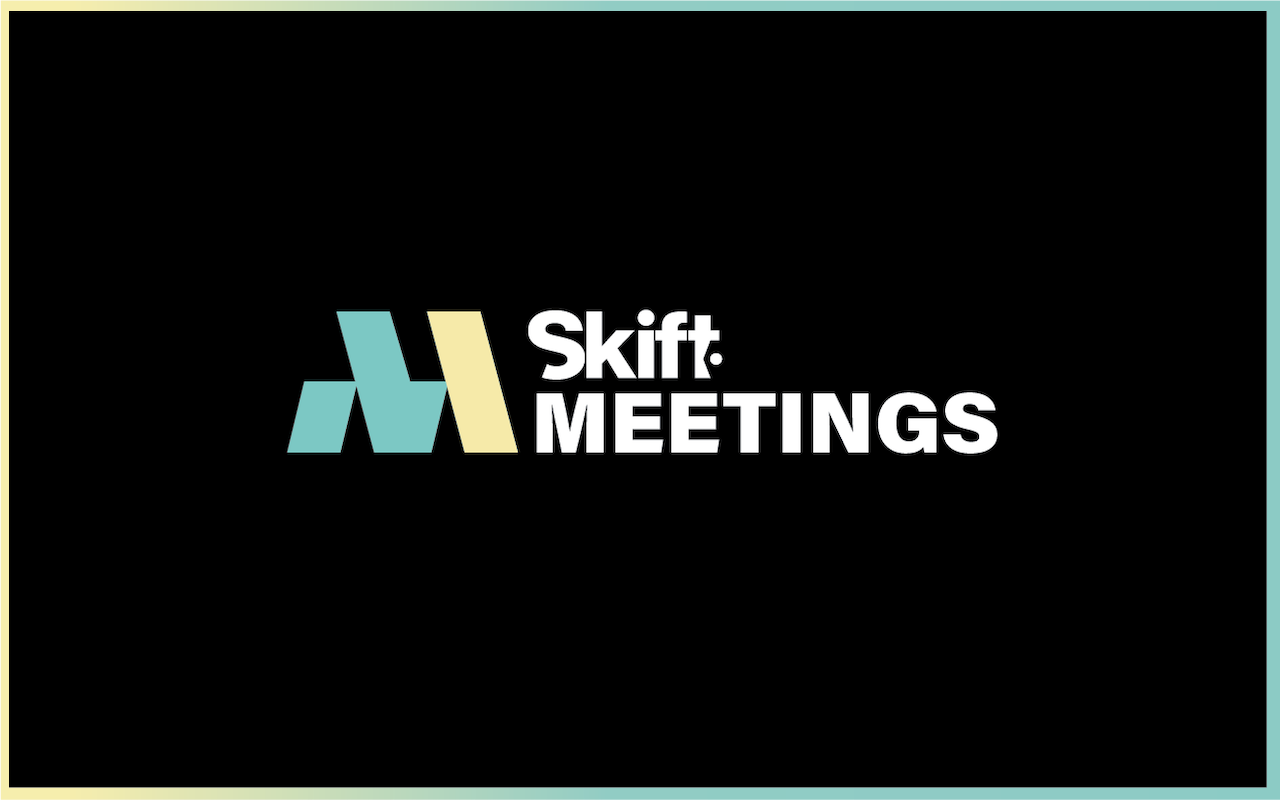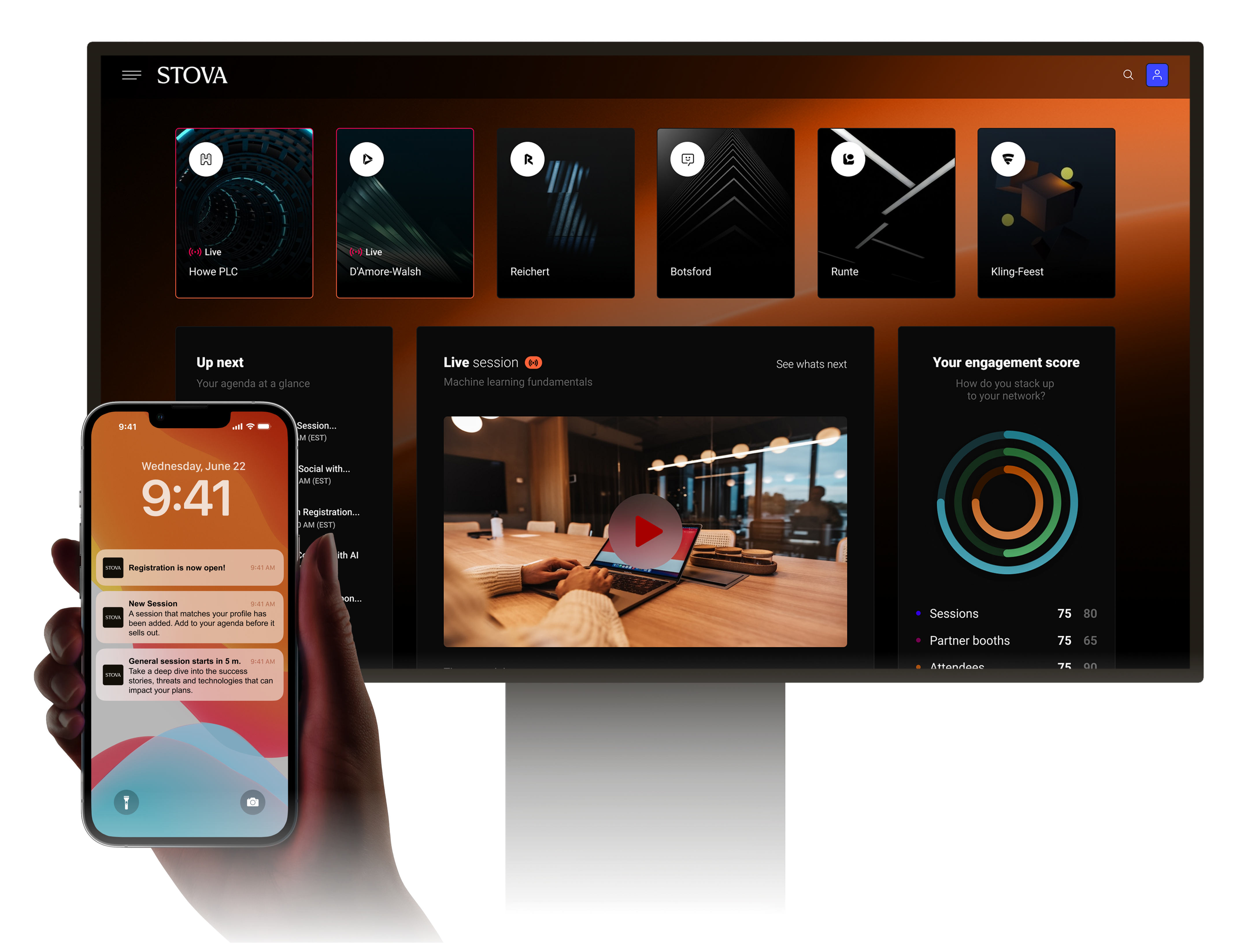Introduction
Event planning and execution is a complex process that requires coordinating many moving parts. From registrations and payments to venue management, speaker handling, and post-event reporting – there is a lot that goes into delivering exceptional events. While Excel sheets and basic tools used to be enough, the event landscape has evolved tremendously over the past few years. Hybrid and virtual events are the norm, and attendees expect polished, digital-first experiences. This is where all-in-one event management platforms come into play. By centralizing event data and automating workflows, they help simplify event planning and delivery. In this blog, we evaluate 15 top event management software options based on key criteria to help you find the right solution.
Methods of Evaluation
To evaluate and rank the top 15 event management platforms, we considered the following criteria: Features and functionalities, Pricing and plans, Reviews and ratings, Traffic and backlinks, Technology infrastructure, Attendee and organizer experience, Customer support. In addition to evaluating the platforms based on conventional criteria like features, pricing, and reviews, we also looked at modern metrics like number of backlinks, traffic, and keyword search trends to understand the overall market presence, reputation, and thought leadership of each vendor. This helped provide a more comprehensive perspective on how robust and well-established different players are in the event tech industry.
1. Eventbrite
Eventbrite is a global ticketing and event management platform that allows organizers to create events, manage registrations and tickets, and drive event marketing and promotion. Founded in 2006 and headquartered in San Francisco, Eventbrite has helped over 1 million event creators around the world create meaningful experiences for their attendees.
Pros: The main advantages of Eventbrite include:
– Excellent platform for smaller events and conferences
– Intuitive and user-friendly interface that makes it easy for anyone to set up and manage events
– Integrations with major payment services like PayPal, Stripe and Braintree for fast and easy ticket sales
– Large global user and organizer base that help drive event promotion and discovery
Cons: The main disadvantage of Eventbrite is that it works best for smaller events and may not be as good of a fit for very large events with complex ticketing and registration needs.
Pricing: Eventbrite offers both free and paid plans. The free Basic plan is suitable for smaller events with fewer features. Paid Professional and Organizer plans start at $99/month and provide more customization options, advanced marketing tools, and larger ticket volume capacity.
Some key stats about Eventbrite include:
– Over 1 million events created each year around the world
– Over 200 million users and attendees
– Organizers in over 175 countries
– Integrations with over 150 payment providers
EventbriteEventbrite – Discover the Best Local Events & Things to Doeventbrite.com
2. Cvent
Cvent is one of the leading and most comprehensive event management software providers. Founded in 1999 and headquartered in Tysons Corner, Virginia, Cvent serves over 4,500 customers globally across industries. With over 3,000 employees, Cvent offers a full suite of event management solutions to help organizations plan, market, and execute events of all types and sizes.
Pros: The main advantages of Cvent include:
– Industry-leading event management platform with a full suite of robust features
– Strong technology infrastructure and support for large and complex events
– Large event library and community for sharing best practices and content
– Deep hotel booking and management capabilities through Cvent Supplier Network
Cons: One potential disadvantage is the pricing, as Cvent offers multiple pricing tiers and additional fees for premium features which can become expensive for large events or complex requirements.
Pricing: Cvent offers several pricing tiers including:
– Basic – Starting at $99 per month
– Professional – Starting at $249 per month
– Elite – Starting at $599 per month
There are also additional per-registrant or per-booking fees depending on the plan. Custom enterprise pricing is available as well.
Some key stats about Cvent include:
– Over 1.5 million users worldwide
– Manages over 50,000 events per year
– Supports events of all types including conferences, trade shows, user groups, galas and more
– Supports events of all sizes from small local events to events with attendance of over 50,000 people
3. Eventzilla
Eventzilla is a leading all-in-one event management software that helps event organizers and marketers streamline operations and simplify the event experience for attendees. Founded in 2008 and headquartered in San Francisco, Eventzilla powers events of all types and sizes with custom branded registration sites, integrated payments, and robust reporting and analytics tools. Their powerful yet intuitive platform allows event professionals to focus on what matters most – making meaningful connections and moving their mission forward.
Pros: Some key advantages of Eventzilla’s event management software include:
– Customizable and flexible event registration pages and mobile apps.
– Powerful registration and ticketing features including waiting lists, discount codes, integrations with payment gateways and CRM platforms.
– Robust mobile app functionality that lets attendees access schedules, maps, and custom push notifications directly from their phones.
– Affordable pricing with plans starting at $49/month for basic features.
Cons: One potential disadvantage is that while Eventzilla has a generous free trial offering, some additional features like recurring registration forms and advanced reporting require upgrading to paid plans. So the free version has limited functionality for all but the simplest events.
Pricing: Eventzilla offers transparent pricing plans starting from $49/month for basic features up to $299/month for premium packages. All plans include unlimited users, 24/7 support, and a choice of monthly or annual billing. They also offer a free forever plan for simple one-time events with 50 or fewer participants.
Here are some key stats about Eventzilla’s event management software:
– Over 1 million users globally
– Hosts thousands of events each month across various industries including education, nonprofit, corporate, and more
– Offers full multi-language and localization support
– Backed by a dedicated customer support team
4. Gather
Gather is an all-in-one virtual event platform that allows users to host engaging virtual events and meetings. Founded in 2020, Gather provides a lifelike 3D environment where attendees can interact, collaborate and network like an in-person event.
Pros: Some key advantages of Gather include:
– Lifelike 3D environment that makes virtual interactions feel more human
– Engaging sessions and booths allow for presentations, brainstorming and networking
– Suite of collaboration tools like screen sharing, file sharing, private messaging, polling and Q&As
– All-in-one platform so no need to use multiple tools for a complete virtual event
Cons: One potential disadvantage is the learning curve to set up rooms and space may take some time for non-technical users. However, Gather provides guides and tutorials to help new users get started.
Pricing: Gather offers three pricing tiers:
– Free Plan: Supports up to 50 attendees. Watermark on exports. $0
– Pro Plan: Supports up to 300 attendees. Remove watermark. Starting at $49/month
– Enterprise Plan: Unlimited attendees. Dedicated success manager. Custom branding. Starts at $250/month.
Some key stats about Gather include:
– Used by over 5,000 companies worldwide including Dropbox, VMware, Twitter and Spotify
– Hosted over 100,000 events since launching
– Average event sees 50+ attendees
– New features and improvements added monthly
5. Social Tables
Social Tables is event management software that focuses on venue and space management. Founded in 2010 and headquartered in Washington D.C., Social Tables aims to make event planning and venue management easier through its collaborative event design tools.
Pros: Some key advantages of Social Tables include:
– Venue management at its core – Allows venues to easily share floorplans and manage events.
– Excellent mobile apps – Event diagrams and management on the go.
– Room finding and booking – Search available venues and book spaces easily.
– Analytics and metrics – Insights into events, budgets, and more.
Cons: A potential disadvantage is that the pricing can get expensive for very large events or complex venue needs compared to some other event management software options.
Pricing: Social Tables offers several paid plans starting at $49 per month for the basic plan for up to 3 organizers and 5 events at a time. Larger plans with additional features are available, with custom enterprise pricing also available.
Some key stats about Social Tables include:
– Used by over 250,000 event professionals globally.
– Works with over 10,000 venues worldwide.
– Features integrations with ticketing platforms like Eventbrite and planning tools like Sched.
– Received $115 million in total funding to date.
6. Eventtia
Eventtia is an event management software used for planning, organizing and managing events of all sizes. Founded in 2012 and based in New York City, Eventtia provides a full-featured event platform to help event organizers plan successful events. The platform offers features such as online registration and ticketing, speaker and schedule management, custom mobile apps and more.
Pros: Some key advantages of Eventtia include:
– Simple and affordable online ticketing
– Good basic event management features like registration, payments, and reporting
– Customizable event registration forms
– Integrates well with tools like Google Calendars, Mailchimp, and SurveyMonkey
Cons: A potential disadvantage is that the customization options are somewhat limited for very large or complex events.
Pricing: Eventtia offers four pricing tiers: Basic ($19/month), Pro ($49/month), Advanced ($99/month), and Enterprise (custom quote). All plans include features like online registration, ticket sales, speaker management, custom forms and more. Additional features are included in higher tiers like Live Streaming, Additional Admins, and Advanced Reporting.
Some key stats about Eventtia include:
– Over 10,000 events hosted annually on the platform
– Used in over 50 countries worldwide
– Trusted by organizations like Allrecipes, Mozilla and Boston University
7. EventMB
EventMB is an all-in-one event management software that helps event planners organize, promote, and manage their events. Founded in 2009 and based in San Francisco, EventMB offers a full suite of event planning tools to help organizations of all sizes host successful events.
Pros: Some key advantages of EventMB include:
– Robust event management features like registration, check-in, agenda building, and more
– Comprehensive registration and ticketing functionality
– Flexible floor mapping and venue layout tools
– Intuitive dashboard for easy event oversight
Cons: One potential disadvantage is that it has fewer customization options compared to some pricier competitors, so event pros with very complex needs may find it more limited.
Pricing: EventMB offers affordable and transparent pricing starting at $49 per month for the basic Starter plan for up to 100 attendees. Additional Premium and Enterprise plans are available for larger events.
Some key stats about EventMB include:
– Over 15 years of industry experience
– Used by over 5,000 customers worldwide
– Hosts millions of attendees at events each year
– 24/7 live chat and email support
8. Accelevents
Accelevents is an all-in-one event management software that helps event planners seamlessly plan, promote and produce virtual, in-person and hybrid events. Founded in 2011, Accelevents has grown to serve over 1,200 customers across 20 countries and aims to be the leading event technology platform for organizations of all sizes.
Pros: Some key advantages of Accelevents include:
– Easy to use mobile-first interface
– Good attendee engagement features like polls, Q&As and gamification
– Powerful reporting and lead generation tools
– Affordable pricing plans for all event sizes
Cons: A potential disadvantage is that the platform may not be as full-featured as some competitors specifically targeting large enterprise customers.
Pricing: Accelevents offers several pricing tiers to suit events of all sizes. The basic plan starts from $49/month for up to 100 attendees. There are additional packages available for mid-sized and large enterprise events priced at $99 and $249 per month respectively with increased features and support.
Some key stats about Accelevents include:
– Serves over 1,200 customers globally
– Hosted over 10,000 events on the platform
– Available in 5 languages
– 24/7 live chat and email support
9. Aventri
Aventri is an event management software that offers a all-in-one platform for planning, registration, logistics and more. Founded in 2005, Aventri has helped over 10,000 organizations plan and execute successful events. With Aventri, event organizers can manage the entire event lifecycle from beginning to end.
Pros: Some key advantages of Aventri include:
– Intuitive dashboard for managing all event aspects from one place
– Robust registration module for selling tickets and managing attendees
– Integrations with payment gateways for seamless transactions
– Advanced reporting and analytics on ticket sales, attendee demographics and more
– Mobile app for attendees to access schedules, maps and more on the go
Cons: One potential disadvantage is the pricing, as Aventri plans and pricing can be higher than some other event management solutions for smaller events with fewer attendees or sessions.
Pricing: Aventri offers a range of pricings plans depending on the event size and features needed. Basic plans start from $99 per month for small events under 100 attendees. For larger events with thousands of attendees, customized enterprise plans are available with per attendee pricing models.
Some key stats about Aventri include:
– Over 10,000 customers in more than 60 countries
– Hosted over 1 million events
– Processed over $2 billion in ticket sales
– 24/7 customer support in 11 languages
10. SpotMe
SpotMe is an event management platform that helps event organizers plan, manage and execute successful events. Founded in 2013 and headquartered in San Francisco, SpotMe aims to make events seamless from start to finish with an all-in-one platform.
Pros: Some key advantages of SpotMe include:
– Intuitive drag-and-drop floor plan builder
– Customizable event registration forms
– Good for conferences, trade shows and expos
– Real-time analytics and reporting
– Mobile app for event staff and attendees
Cons: One potential disadvantage is that the floor plan builder may have a learning curve for more complex event layouts.
Pricing: SpotMe offers several paid plans for events of all sizes. Pricing starts at $49 per month for small teams and goes up based on number of users, features, and event attendees.
Some key stats about SpotMe include:
– Over 500,000 events hosted on the platform
– Used by over 5,000 companies globally
– Processes over $1 billion in ticket sales annually
11. EventSquid
EventSquid is an event management software that helps event organizers plan, manage and track every aspect of their events. Founded in 2016, EventSquid is based in Vancouver, Canada and has helped over 10,000 organizers run more than 50,000 events globally. Their all-in-one platform provides tools for registration, website building, mobile apps, exhibitor sales, communication and more.
Pros: Some of the key advantages of using EventSquid include:
– Intuitive dashboard makes event management simple and easy
– Built-in tools for registration, website creation, mobile apps, payment processing and more
– Affordable pricing plans with all critical features included
– Robust communication features for attendee engagement
– Integrations with payment gateways and third-party tools
Cons: A potential disadvantage is that the mobile app creation tool has limited customization options compared to other dedicated mobile app creation services.
Pricing: EventSquid offers flexible pricing plans starting from $19 per month for the basic Blueprint plan suitable for small events up to $99 per month for the top Champion plan for advanced users with unlimited features and support.
Some key stats about EventSquid include:
– Used by over 10,000 organizers worldwide
– Has helped manage over 50,000 events to date
– Offers affordable pricing starting from $19/month for basic plans
– Provides built-in marketing features like email campaigns and analytics
12. MeetingPlay
MeetingPlay is an all-in-one event management software that helps organizations plan, promote, and deliver both virtual and in-person events. Founded in 1999, MeetingPlay has over 20 years of experience in the event technology industry and powers events of all sizes for some of the world’s largest brands and event producers.
Pros: Some key advantages of MeetingPlay include:
– Strong virtual and hybrid event capabilities with features like livestreaming, interactive sessions, and virtual networking
– Comprehensive registration tools to manage attendee registration, payment processing, and badges/tickets
– Exhibitor management and sponsorships tools to power both virtual and in-person exhibitor experiences
– Online community features like forums, Q&As, and polls to foster engagement before, during, and after events
Cons: One potential disadvantage is that as a full-service event management platform, MeetingPlay may be overkill for smaller, less complex events that don’t require a lot of the advanced features.
Pricing: MeetingPlay offers flexible pricing plans starting at $99/month for their basic Enterprise plan. Additional feature-rich plans include:
– Enterprise+ starting at $199/month
– Premier starting at $499/month
– Custom enterprise plans also available for largest event producers
Some key stats about MeetingPlay include:
– Over 500 employees globally
– Used by over 15,000 customers worldwide
– Hosted over 1 million virtual and hybrid events on their platform
13. Eventioz
Eventioz is a leading event management software that helps event organizers, planners and marketers effectively manage their events from start to finish. Founded in 2016, Eventioz is based in San Francisco and has helped thousands of users around the world manage millions of attendees. Their all-in-one platform offers online ticketing and registrations, customizable attendee profiles, robust reporting and more.
Pros: Some of the key advantages of Eventioz include:
– Online ticketing and registrations
– Customizable attendee profiles
– Robust reporting features
– Affordable pricing starting from $29/month
Cons: A potential disadvantage is that the free plan only allows one organizer and up to 50 attendees which could limit its use for very large events.
Pricing: Eventioz offers flexible and affordable pricing plans starting from $29 per month for the Basic plan up to $249 per month for the Enterprise plan. Additional per-attendee fees apply for tickets sold beyond the plan limits.
Some key stats about Eventioz include:
– Over 5,000 customers in 90+ countries
– Managed over 5 million attendees on the platform
– Feature rich platform with over 30 customizable modules and apps
– Integrations with 150+ other tools like Mailchimp, Google Calendar, etc.
14. EventGeek
EventGeek is an all-in-one event management software that provides tools to help event planners and organizers successfully plan, market, and run both live and virtual events. Founded in 2008 and based in San Francisco, EventGeek aims to take the stress out of event planning by providing a centralized platform for organizing every aspect of an event. Some key features include a customizable event website builder, integrated ticketing and registration, venue and vendor management, and analytics to help optimize future events.
Pros: Some key advantages of EventGeek include its intuitive and easy-to-use interface, powerful builtin tools for marketing events through various social channels, and its flexibility and customizability that allows planners to create unique event experiences. Another advantage is its integrated system that manages all aspects of planning in one place to avoid using multiple tools.
Cons: A potential disadvantage is that for very large and complex events, some additional custom integrations or workflows may need to be built out beyond the standard platform capabilities. The prices also scales with events and can get costly for very large conferences or festivals with tens of thousands of attendees.
Pricing: EventGeek offers flexible pricing plans tailored to organizations of different sizes and budgets. Basic plans start at $49 per month for smaller teams and events. Feature-rich professional plans range from $99 to $249 per month based on number of users and events. Additionally, enterprises can request custom enterprise pricing for their large-scale needs.
EventGeek powers over 5,000 events each month for a wide variety of organizations from small local non-profits to large corporations. They have helped clients like Microsoft, General Motors, and Pepsi host both internal and external events. The platform is suitable for events of all sizes, from small private gatherings and meetings to large multi-day conferences and expos.
15. Eventy
Eventy is event management software that helps event organizers effectively manage their events from online registration and ticket sales to post-event reporting and analytics. Founded in 2015, Eventy is based in San Francisco and has helped thousands of event organizers around the world put on successful events. Some key features of Eventy include online ticket sales, customizable profiles, analytics and reporting, and an affordable starting price.
Pros: Some key advantages of using Eventy include:
– Online ticket sales and registration allow attendees to easily purchase tickets and submit registration info.
– Customizable event and attendee profiles make it simple to gather and store important info.
– Good analytics and reporting features give event organizers insight into things like top sessions, most active attendees, etc.
– Affordable starting price makes Eventy accessible for events and budgets of all sizes.
Cons: A potential disadvantage is that free accounts are limited to 100 attendees or less so Eventy may not be suitable for very large events without upgrading.
Pricing: Eventy offers 3 pricing tiers:
– Basic Plan: Free, limited to 100 attendees or less
– Standard Plan: $29/month billed annually, no attendee limit
– Pro Plan: $99/month billed annually, includes additional features like customized branding and SSO integration
Some key stats about Eventy include:
– Over 5,000 events hosted annually using Eventy
– Profiles and info for over 500,000 attendees managed through Eventy
– Ticket sales of over $50 million processed via Eventy’s online payment system
EventyEventy – User group & event software that just workseventy.io
Conclusion
Choosing the right event management platform is crucial to simplify planning processes and deliver great attendee experiences consistently. While no solution will be perfect for every type of event, this evaluation of the top 15 platforms provides a balanced perspective based on both traditional and emerging considerations. We hope this helps you shortlist options that match your unique event needs, whether it is functions, pricing, reputation or other factors. Do your due diligence by exploring vendor websites and reading case studies. You may also want to test-drive platforms to understand nuances before making the decision. With the right tool, event planning can be enjoyable rather than overwhelming.














